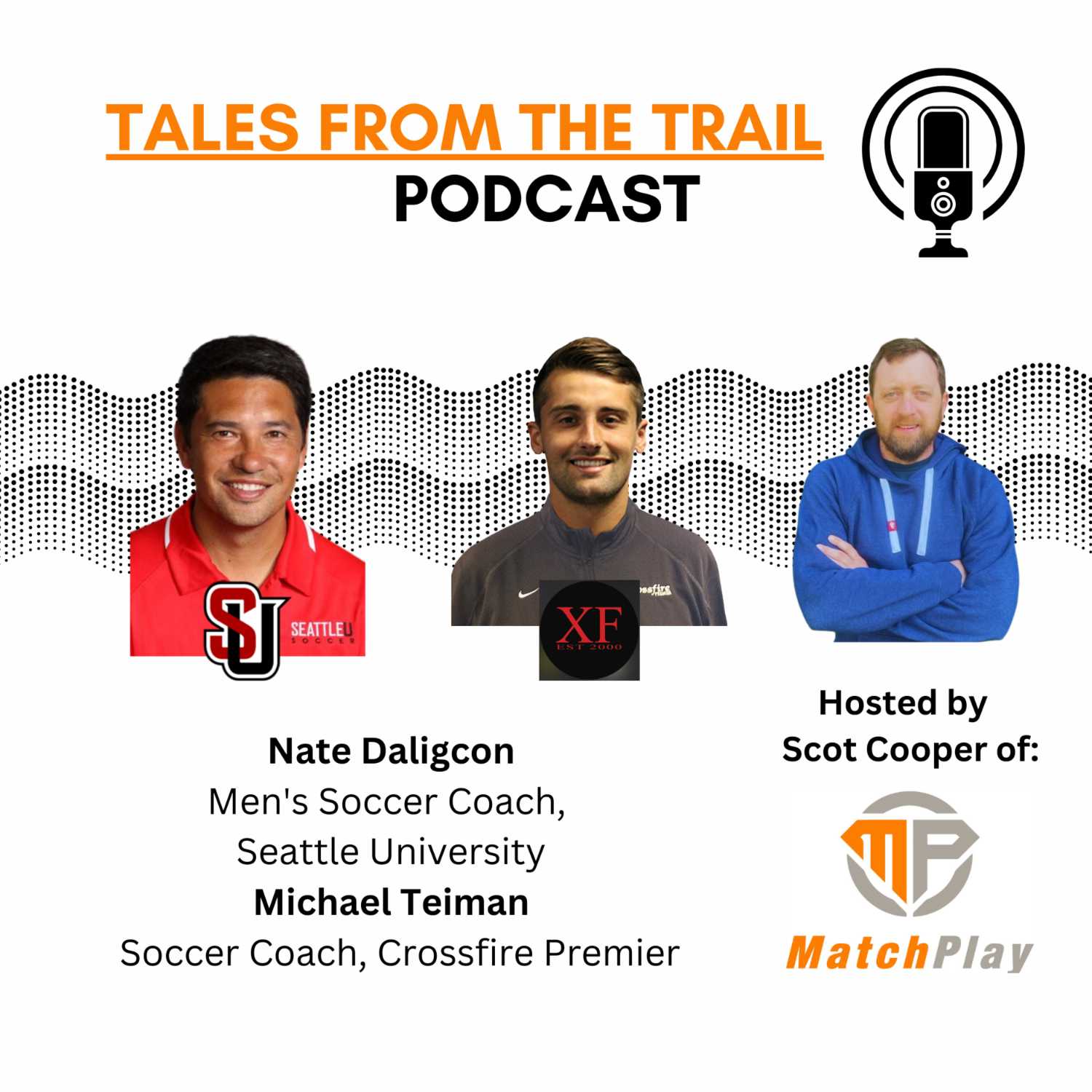16. Nate Daligcon, Men's Soccer Coach, Seattle University and Michael Teiman, Coach, Crossfire Premier, Seattle, WA
- Author
- Scot Cooper
- Published
- Mon 31 Jul 2023
- Episode Link
- https://rss.com/podcasts/tales-from-the-trail-1/1057866
In this episode I welcome the head coach of the men’s soccer program at Seattle University, Nate Daligcon. Nate brings a ton of experience and a west coast perspective to the podcast. He’s been a part of the Redhawk program for over a decade and has been instrumental in being a perennial leader of the WAC conference. Also joining us is Michael Teiman. Michael came to the U.S. from Liverpool to play college soccer at the College of William & Mary and went on to coach at Wilkes University and Penn State-Berks. He then made his way west to become a coach at Crossfire, one of the premier youth clubs in the Pacific Northwest.
Summary
Nate Daligcon, head men's soccer coach at Seattle University, discusses his coaching journey, the differences in youth soccer on the West Coast, and the challenges of recruiting players. He emphasizes the importance of passion, work ethic, and internal conversation in player development. Nate also highlights the role of parents in the recruiting process and managing expectations. He shares insights on effective communication with college coaches and the changes in college soccer recruiting. Overall, Nate provides valuable advice for players, parents, and coaches involved in the college soccer recruiting process. The conversation explores the importance of passion and enjoyment in sports, the influence of coaches on athletes' mentality, creating a culture of passion, finding the right fit for college soccer, and the differences between East Coast and West Coast programs. It also discusses the impact of academies on the competitive level of athletes.
Takeaways
Passion and work ethic are crucial for success in soccer.
Effective communication with college coaches includes providing detailed information and demonstrating interest in the school.
Parents play a significant role in guiding their child's college decision-making process.
Observing a player's behavior and attitude is important in the recruiting process.
Developing a winning mentality and internal conversation can contribute to a player's success. Passion and enjoyment are crucial in sports and can greatly impact an athlete's performance.
Creating a culture of passion within a team can lead to increased competitiveness and success.
Finding the right fit for college soccer involves considering factors such as playing time and enjoyment.
There are differences between East Coast and West Coast programs, including the level of competition and the number of available programs.
Academies can sometimes focus more on individual development, which may require an adjustment when transitioning to college soccer.
Chapters
09:46 Proving Interest in a College Program
10:38 Evolution of Youth Soccer
11:39 Importance of Individual Training and Extra Work
13:48 Parental Role in College Decision-Making
16:16 Role of Parents in the Recruiting Process
18:34 Importance of Input from Coaches and Parents
20:43 Managing Expectations of Parents and Players
24:09 Observing Interactions between Players and Parents
26:38 Recruiting Challenges and Changes
29:15 Changes in College Soccer Recruiting
32:09 Being Honest and Upfront with Players
33:33 Importance of Internal Conversation and Work Ethic
36:10 Observing Player Behavior and Attitude
37:22 Developing a Winning Mentality
40:59 Encouraging Internal Conversation and Discipline
42:51 Developing Leadership and Work Ethic
47:55 The Importance of Passion and Enjoyment
48:35 Influencing the Mentality of Young Athletes
51:37 Creating a Culture of Passion
52:35 Finding the Right Fit for College Soccer
53:33 Differences Between East Coast and West Coast Programs
55:31 Impact of Academies on Competitive Level
